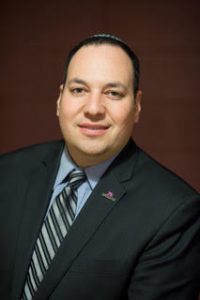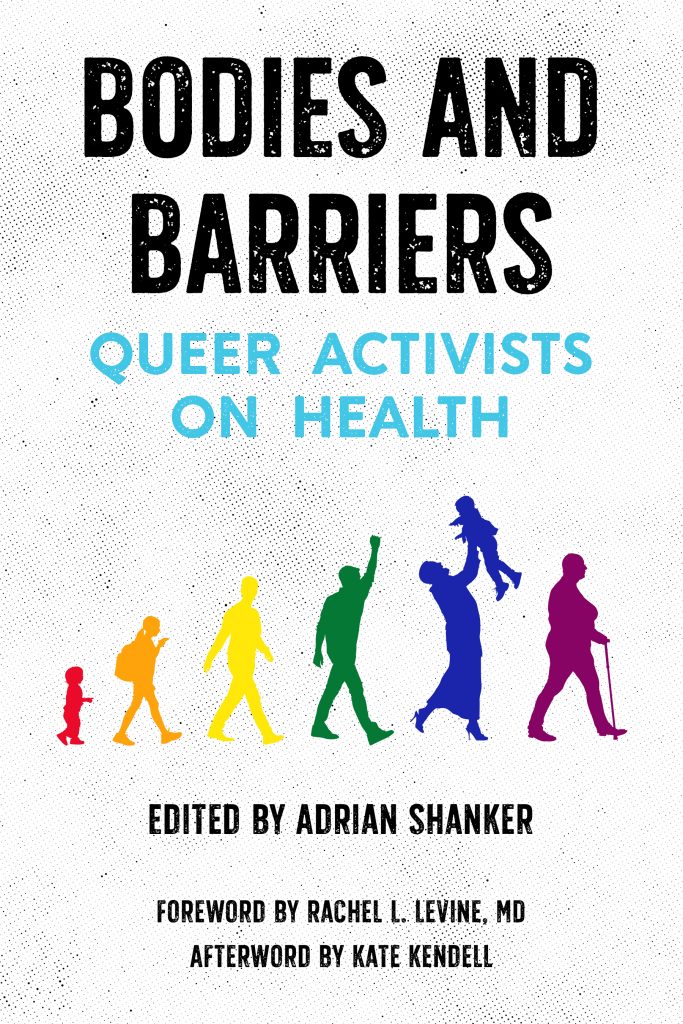Stephen meets… Adrian Shanker, Editor of ‘Bodies and Barriers: Queer Activists on Health’
Adrian Shanker’s tireless activism has largely been concentrated in Pennsylvania. With Bodies and Barriers: Queer Activists on Health, he presents a timely and compelling look at our healthcare system and the challenges faced by LGBT people when it comes to accessing care.
Recently he took a break to answer these questions about the health of the LGBTQ Community. Please turn your head to the left and cough!

Stephen Libby: Why is Bodies & Barriers so important to the LGBTQ community?
Adrian Shanker: Throughout history, the healthcare system has left LGBT people behind. And today it is no different. The pervasive health disparities our community experiences are mostly preventable – they are caused by social conditions, not biological conditions. In other words, our health is harmed because the healthcare system isn’t working for LGBT people. There’s too many barriers to care for our community.
Bodies and Barriers: Queer Activists on Health (PM Press) is about raising the voices that need to be heard to change our broken healthcare system and make it work for our queer bodies. It is the first book written by LGBT consumers of healthcare specifically to inform and improve the healthcare system. This anthology includes essays by 26 queer activists – some well known, and some emerging leaders – all of whom can speak from personal experiences about the problems LGBT people experience when accessing healthcare, and all of them have solutions that can make healthcare work for all of us.
SL: How did you decide which activists to include?
AS: As an anthology, Bodies and Barriers: Queer Activists on Health is a curated collection of ideas. As the editor, I organized the essays in the book to follow the lifespan of an LGBT person — youth, young adults, middle age adults, and older adults — so one of the first chapters is by Alisa Bowman about navigating pediatric care for trans youth, and the final chapter, by Justin Tanis, is about bereavement support for the LGBT community.
The participating authors were selected with an intention of highlighting some of the most important health challenges facing our community. Some authors, like Sean Strub, Jack Harrison-Quintana, Ryan Thoreson, Robyn Ochs, and Liz Margolies, are nationally known for their leadership and activism for LGBT health. For other authors, this is their first published work.
I’m also really excited that Pennsylvania Secretary of Health Rachel Levine authored the foreword to the book, and that national LGBT movement hero Kate Kendell penned the afterword.
SL: What lessons from the book might be especially relevant to LGBT people in their forties?
AS: Since Bodies and Barriers takes readers on a journey through the queer lifespan there is an entire section of the book dedicated to the health experiences of middle-age adults. The book includes leading-edge topics like safe-sex in our digital era, addiction and recovery in the LGBT community, and conversations about anal health.
Scout talks about how at this time in our lives, it’s really the prime time to quit smoking.
Liz Margolies writes about cancer in our community — when people are in their 40s and 50s, it’s important to start talking with your doctor about a variety of routine cancer screenings as some folks have a family history that may suggest early screening to be advantageous.
Robyn Ochs writes about bisexual people’s experiences in healthcare. And of course, there’s topics relevant to parents as well.
Alisa Bowman, a parent of a transgender child, writes about navigating pediatric care for trans youth.
SL: Many of us are thinking about health during the COVID-19 pandemic. Are there any takeaways in the book that might be helpful right now?
AS: Obviously the book was written and edited before COVID-19, however it is very relevant in this moment. No the novel coronavirus doesn’t somehow have better gaydar than our own community and seek out queer people’s bodies to infect. But LGBT people are absolutely more vulnerable to this virus than the majority population.
We live with increased risk factors and we live with a system of healthcare that includes barriers to care at every step of the way. LGBT people are not more biologically inclined to be infected by COVID-19, but the social and cultural barriers in our society put us at greater risk. That’s really what this book is about — LGBT people telling our stories and the barriers to care we have experienced in our lifetimes..
SL: In general, how can LGBTQ people be healthier?
AS: There’s many behavioral changes LGBT people can make to lead healthier and longer lives. Quitting smoking, making risk-aware decisions with regard to our sexual health, finding healthcare professionals we are comfortable with and going to see them.
But with respect to the question — I think it should be the other way around. How can the healthcare system provide high-quality care for the LGBT community?
They can provide non-judgmental services, they can train themselves on LGBT-specific medical needs, they can teach LGBT health in medical and nursing schools, they can create waiting rooms and clinical environments that make us all feel welcome, and they can ask us questions about our health that include all of who we are.
Our healthcare system is broken and it’s not working for LGBT people. What’s needed are clinical changes and policy changes, in addition to the behavioral changes each of us can make, so that LGBT people can live long, healthy lives!
Bodies and Barriers: Queer Activists on Health is published by PM Press and is available wherever books are sold.








Pingback: Stephen meets… Adrian Shanker, Editor of ‘Bodies and Barriers: Queer Activists on Health’ - PM Press